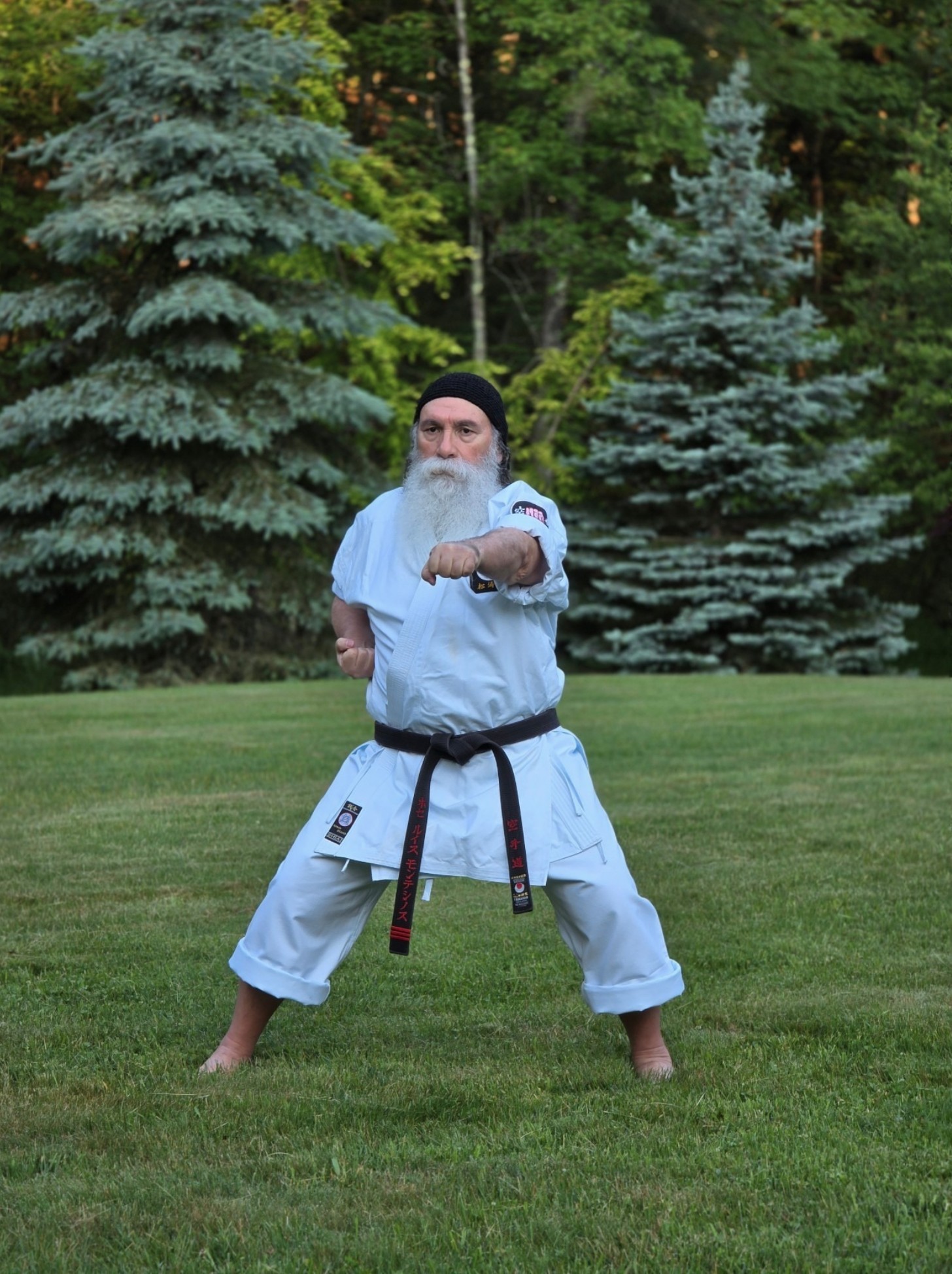“Approached from the perspective of Budo, karate ceases to be a sequence of classifiable techniques or a system of graded progression. It is not offered as a succession of achievements, nor does it respond to the logic of accumulation that dominates much of modern thinking. Rather, it unfolds as a continuous process, irreducible to a conclusion, with no promise of culmination. No amount of years—twenty, thirty, forty, or more—is enough to exhaust its demands. Far from leading to a stable goal or objective, its practice transcends its own initial frameworks and constantly reconfigures the relationship between body, consciousness, and world.
Over time, the technical gesture loses its rigidity. What once required willful effort and tense attention begins to emerge without friction; the body learns to remember for itself. It is no longer a matter of controlling movement, but of inhabiting it fully. The technique does not weaken; it simplifies without becoming impoverished. It acquires a serene gravity, a precision that does not need to be imposed. At the same time, the physical transformation, although evident, is secondary to a more decisive mutation: that of the spirit, the inner disposition. The form is refined, yes, but it is the spirit, tempered by silent and meditative repetition, that sustains the form without displaying it.
These statements may seem excessive, even mystical, if one has not traveled that path. I am not trying to elaborate a thesis or theorize: I can only give an account of what I have experienced. It was not the will to achieve an end that sustained my practice, but the awareness that the only access to understanding requires continuity. Without interruption. Without shortcuts. Real progress in this domain does not add up: it transforms. It does not consist of moving forward to another place, but of returning, again and again, to the same point, with a changed perspective. Far from being an obstacle, repetition reveals itself as a meditative threshold.
Those who decide to embark on this journey will not find a fixed destination, but rather a growing form of presence in movement. Karate does not end: at a certain point, its direction is reversed. It is no longer the subject who practices it, but rather the subject who begins to practice. It does not become a habit: it becomes a form. A living form that shapes from within a way of sustaining the world.”
Prabhuji




